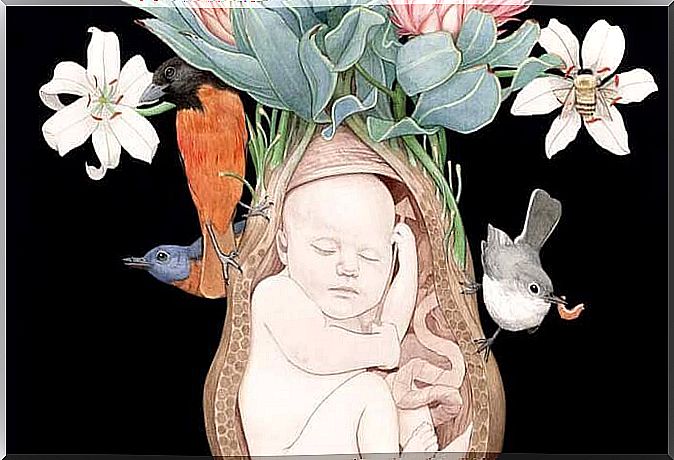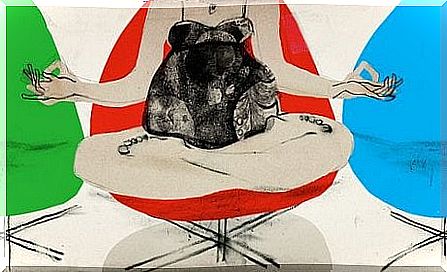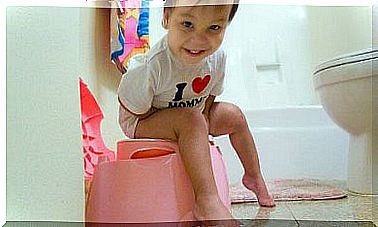Emotional Education In The Womb

The emotional education in the mother’s belly is a wonderful way to encourage your child to an early stage so that it can develop a balanced, stress and anxiety-free personality.
By caring for the emotional world of the mother, the little belly-dweller also benefits from this wonderful experience throughout his life.
If you think about it for a moment, you will become aware of one thing: During pregnancy you have various medical check-ups, you ensure particularly good nutrition, you play sports, you buy things for your baby and you worry about how to bring up your baby.
But are you aware of your own emotions? Do you care for her What if your relationship with your father is not going well, or if you are worried about your job?
Vivette Glover, perinatal psychobiologist at Imperian College, London explains that there is a close and powerful relationship between the mother’s emotions and the development of the fetus in the womb.
Effects of emotions on the little belly dweller
We are often not aware of this, but pregnancy is much more than hormonal, emotional and physical changes. We are often sold the idea that pregnancy is wonderful, that it is the best time in life, but not every woman experiences it that way.
Time of change and discomfort
The position of the woman’s organs changes during pregnancy to make room for the child. All of these changes can cause discomfort that some women feel more, others less.
We take care of our bodies, but not our emotions
Experts in perinatal psychology remind us of the risk: it is necessary to consider the mother’s emotional world during pregnancy!
Ultrasound, blood tests and a special diet are very important, but one must also check whether the expectant mother is suffering from stress, nervousness or a hidden depression.
In an interesting book by Vivette Glover called “Perinatal and Postnatal Depression”, the psychobiologist mentions an interesting study carried out at Imperian College, London. 14,000 pregnant women were examined.

- This study examined stress levels and possible indicators of depression.
- After delivery, the children were monitored for a period of 5 years.
- The result of this study showed that there is a connection between depression and stress in pregnancy with later attention deficit with or without hyperactivity.
Emotional education in the womb
We all imagine that the placenta is an impenetrable barrier that protects the growing child from any risk. Many mothers even believe that worries, work or family problems, and stress have no effect on the baby.
But that is not the truth. In order to better understand this, let’s imagine a stressful situation that repeats itself every day for whatever reason.
- In this situation, the hypothalamus produces more CRH hormones, which in turn produce cortisol.
- In the case of chronic stress throughout pregnancy, the natural barrier of the placenta cannot withstand the large amount of cortisol in the blood, which means that this stress hormone also penetrates to the fetus. The developing baby is then on alert because the biochemistry is not beneficial.
We have to be aware of this reality and change certain habits in order to control the emotional world differently.
Then we have a few tips for you that will help you consider these aspects during pregnancy.
How can I build an emotional relationship with my little belly-dweller?

There are many options, but the most important thing is that the mother-to-be feels comfortable. Because then the little child will be fine too.
If you are under pressure and stress, you should distance yourself. You need to take care of your emotional wellbeing during pregnancy!
- Practice yoga and meditation. These two activities will help you focus on the here and now. Only if you look inside you can you build a strong relationship with your baby.
- Gentle abdominal massages, also from your partner, are also very beneficial. You can use a gentle, well-smelling oil for this. This shows your child that you love them and that you are happy and calm.
The emotional education begins in the womb. Use this valuable time and take care of yourself and your child!









